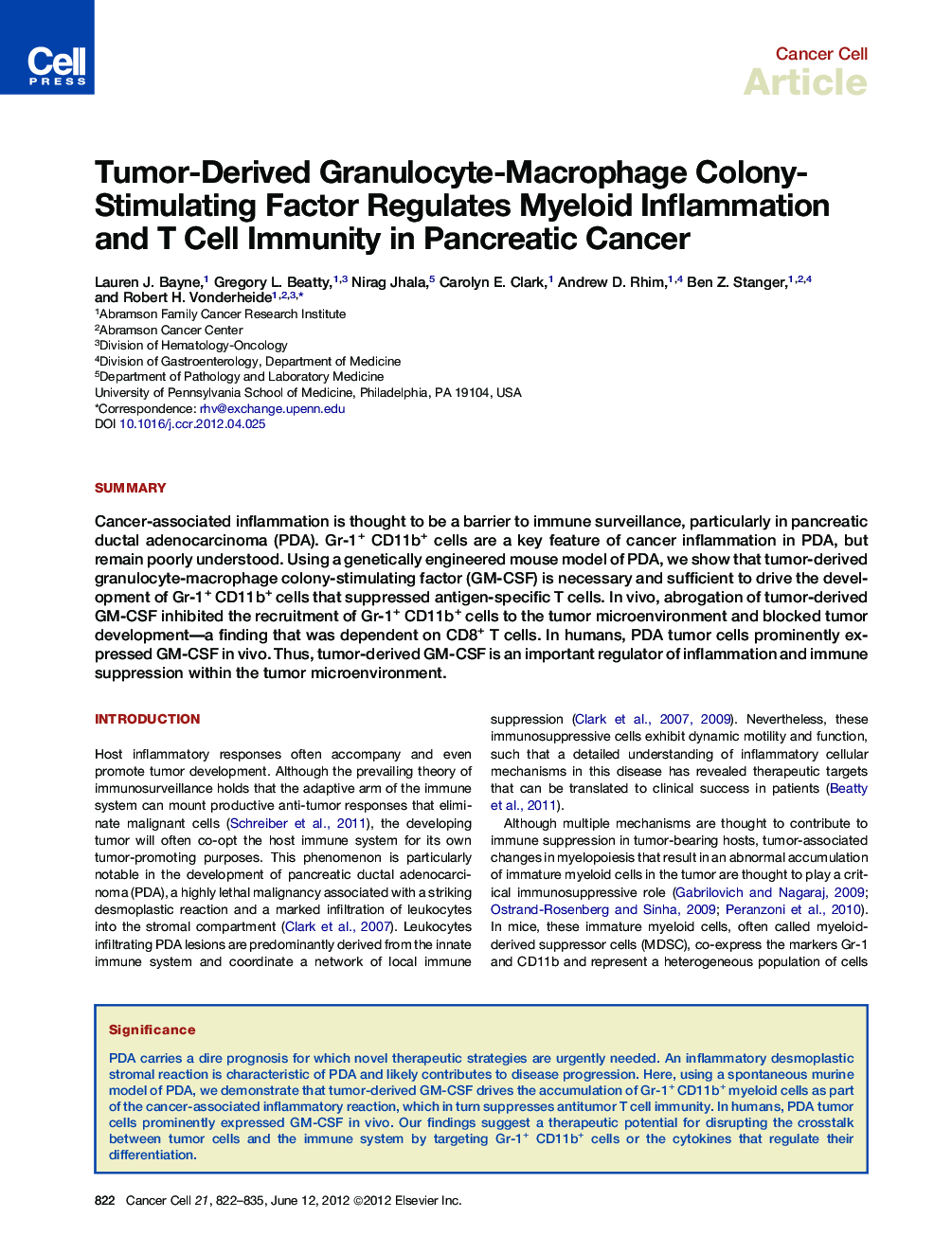| Article ID | Journal | Published Year | Pages | File Type |
|---|---|---|---|---|
| 2107360 | Cancer Cell | 2012 | 14 Pages |
SummaryCancer-associated inflammation is thought to be a barrier to immune surveillance, particularly in pancreatic ductal adenocarcinoma (PDA). Gr-1+ CD11b+ cells are a key feature of cancer inflammation in PDA, but remain poorly understood. Using a genetically engineered mouse model of PDA, we show that tumor-derived granulocyte-macrophage colony-stimulating factor (GM-CSF) is necessary and sufficient to drive the development of Gr-1+ CD11b+ cells that suppressed antigen-specific T cells. In vivo, abrogation of tumor-derived GM-CSF inhibited the recruitment of Gr-1+ CD11b+ cells to the tumor microenvironment and blocked tumor development—a finding that was dependent on CD8+ T cells. In humans, PDA tumor cells prominently expressed GM-CSF in vivo. Thus, tumor-derived GM-CSF is an important regulator of inflammation and immune suppression within the tumor microenvironment.
► Tumor-derived GM-CSF drives immunosuppressive inflammation in pancreatic carcinoma ► Abrogation of GM-CSF blocks tumor development in a T-cell-dependent fashion ► In humans, PDA tumor cells prominently express GM-CSF in vivo ► Findings suggest a therapeutic mechanism to target inflammation in pancreatic cancer
